Secondary Care
Secondary care provides specialist medical services to patients who require more advanced care than what is available in primary care settings.
It includes hospitals, mental health facilities, and ambulance services, delivering urgent, planned, and complex treatments to individuals with acute and long-term conditions.
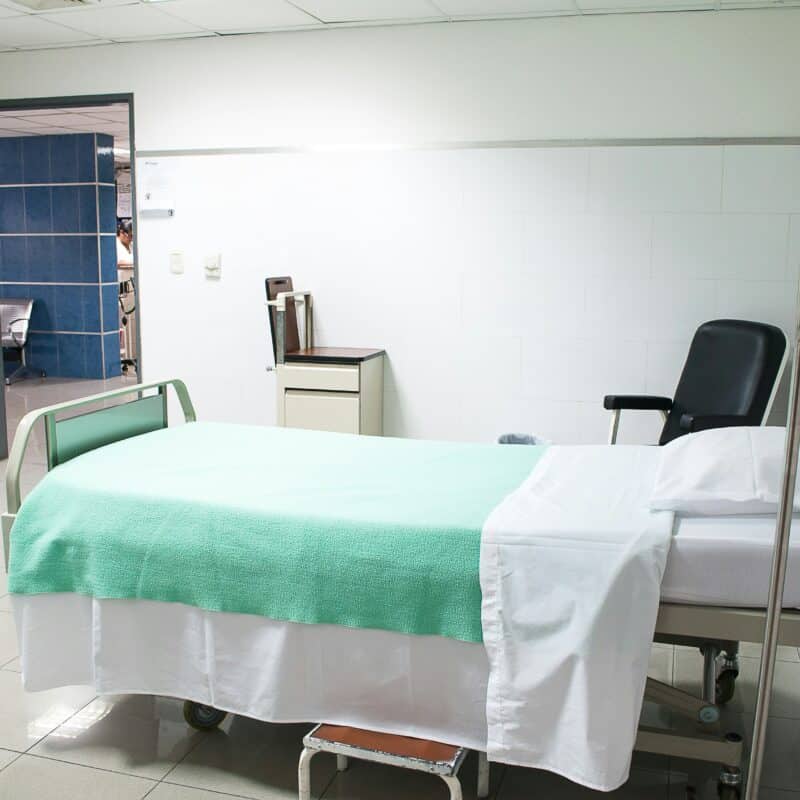
Patients are typically referred to secondary care by GPs or other primary care providers, and they receive treatment from multidisciplinary teams that include doctors, nurses, therapists, and support staff. Whether delivering life-saving emergency care, supporting mental health recovery, or managing surgical procedures, professionals in this sector play a crucial role in delivering high-quality, patient-centred care.
This is a sector where you can truly make an impact. From hands-on clinical roles to essential management, diagnostic, and support positions, there are career opportunities for people with a diverse range of skills and interests.
Secondary care roles are ideal for those who:
Thrive in fast-paced, patient-focused environments.
Have strong clinical expertise or are passionate about operational efficiency in healthcare.
Enjoy working as part of multidisciplinary teams to deliver specialist treatments.
Are you curious about where your skills might fit in this essential sector?
Click on the cards below to explore specific roles and find out how you can contribute to the world of secondary care.
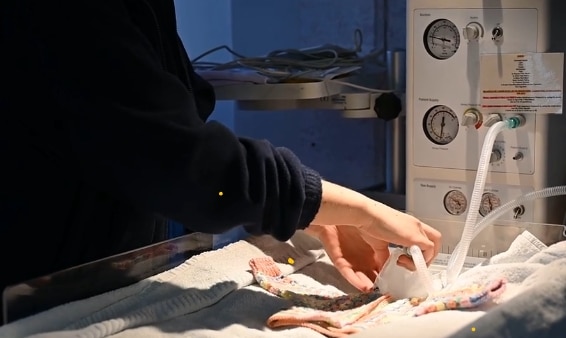
Acute and community hospitals
Acute and community hospitals provide a broad range of medical and surgical services, supporting patients with conditions that require hospital-based treatment. These include emergency care, planned surgeries, specialist outpatient clinics, maternity services, and rehabilitation programmes.
Acute hospitals deal with urgent and complex cases, such as stroke, heart attacks, major injuries, and serious infections, offering 24/7 emergency departments and intensive care. Community hospitals, on the other hand, focus on step-down care, rehabilitation, and specialist outpatient services, often serving as a vital bridge between primary and tertiary care.
Working in this environment means collaborating with a variety of specialists, ensuring patients receive coordinated, high-quality care in either short-term or longer-term hospital settings.
A career in acute or community hospitals is ideal for individuals who thrive in dynamic healthcare environments and are passionate about delivering life-saving or rehabilitative care. Roles in this sector range from direct clinical positions in nursing, surgery, and allied health to operational management and logistical support.
Whether treating critically ill patients in an emergency setting, assisting in planned surgeries, or providing rehabilitation support, every role is integral to ensuring patient recovery and well-being. This is a highly rewarding field for those who enjoy problem-solving, teamwork, and hands-on patient care.

Mental health hospitals
Mental health hospitals provide essential care for individuals experiencing severe and complex mental health conditions. These facilities support patients with conditions such as schizophrenia, bipolar disorder, severe depression, and eating disorders, offering both inpatient treatment and crisis intervention services.
Professionals working in mental health hospitals deliver therapy, medication management, and recovery support, helping patients stabilise and develop coping strategies. The approach is multidisciplinary, with psychiatrists, psychologists, mental health nurses, occupational therapists, and social workers collaborating to deliver tailored care.
These hospitals are crucial in supporting individuals through acute mental health crises, providing a safe, structured environment where recovery can begin.
Working in mental health hospitals is ideal for compassionate individuals who want to support patients with complex emotional and psychological needs. Roles in this sector involve direct patient interaction, crisis de-escalation, therapeutic interventions, and long-term recovery planning.
Whether working as a mental health nurse, therapist, psychiatrist, or support worker, professionals in this field help individuals regain stability and develop the tools they need for independent living. This is a deeply fulfilling career for those who are empathetic, resilient, and committed to improving mental health outcomes.
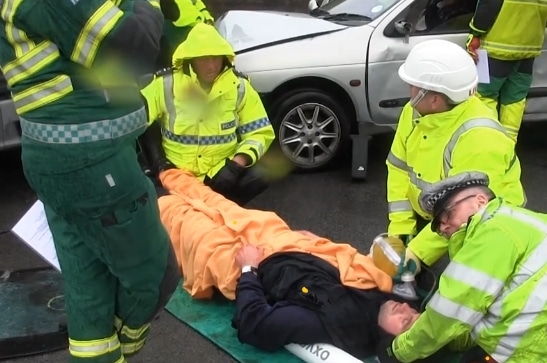
Ambulance and emergency services
Ambulance services provide rapid emergency response and patient transport, ensuring critically ill or injured individuals receive immediate medical care. This includes responding to 999 emergency calls, stabilising patients at the scene, and transporting them to hospitals for further treatment.
Paramedics, emergency medical technicians (EMTs), and ambulance care assistants work in high-pressure environments, delivering urgent interventions such as CPR, trauma care, and pain management. Non-emergency transport services also play a crucial role in helping patients with mobility challenges access essential medical appointments.
Ambulance services operate in highly dynamic settings, requiring professionals to make fast, life-saving decisions while providing reassurance and support to patients and their families.
A career in ambulance services is ideal for those who perform well under pressure and want to make a tangible difference in emergencies. Roles range from frontline emergency responders to non-emergency patient transport drivers, all contributing to the safe and efficient movement of patients.
This sector demands resilience, adaptability, and excellent communication skills. Whether working as a paramedic in critical care situations or ensuring patients get to and from appointments safely, professionals in ambulance services are key to delivering timely, life-saving interventions.
Check out the different roles below:
Are you curious about where your skills might fit in this vital sector?
Click on the cards below to explore specific roles and find out how you can contribute to the world of primary care.

Management and general operations
Hospital directors, mental health unit managers, and ambulance service coordinators oversee the strategic and operational running of secondary care facilities, ensuring efficient service delivery and patient care. They manage financial planning, resource allocation, regulatory compliance, and workforce development. Operations managers ensure that hospitals, ambulance services, and mental health facilities function smoothly by coordinating staff, maintaining budgets, and handling logistics. These roles require strong leadership, decision-making, and the ability to respond to challenges in fast-moving healthcare environments.
Key Roles: Hospital directors, clinical service managers, operations managers, mental health unit managers, ambulance service coordinators, finance managers, HR managers
Skills & attributes: Leadership, strategic thinking, financial oversight, operational management, communication, and crisis management.
These roles are ideal for those who enjoy leading large teams, problem-solving, and making impactful decisions that improve healthcare services.
Scorecard
Salary Potential*
Flexible Hours
Flexible Location
Physicality
*based on a 40-hour working week
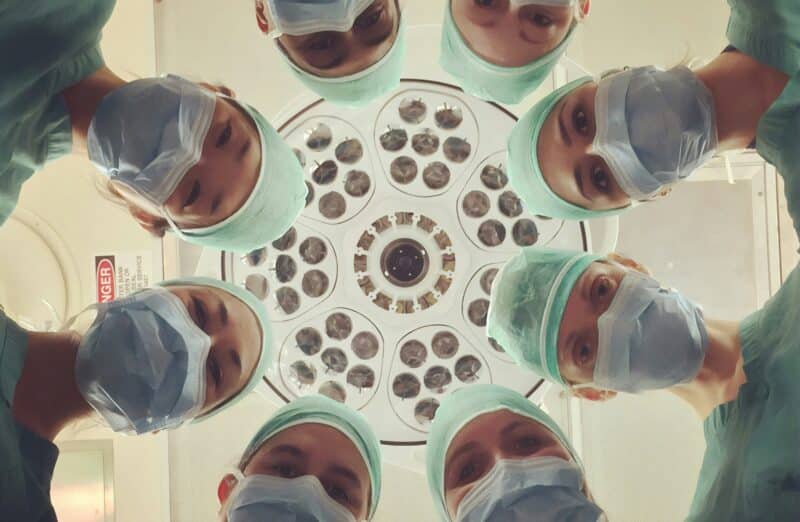
Specialist clinical roles
Specialist clinicians in secondary care provide advanced, often life-saving, medical treatment to patients. These roles require extensive training, with specialists diagnosing and managing complex health conditions, performing surgeries, and delivering targeted interventions. In hospitals, this includes consultants, surgeons, and specialist nurses who work in fields such as cardiology, oncology, and trauma care. Mental health professionals deliver psychiatric and psychological treatment, while critical care teams stabilise critically ill patients in ICUs and high-dependency units.
Key Rroles: Consultants (cardiology, oncology, neurosurgery, orthopaedics, psychiatry), specialist nurses, critical care nurses, mental health nurses, emergency medicine physicians, anaesthetists
Skills & attributes: Advanced clinical expertise, problem-solving, teamwork, attention to detail, and resilience under pressure.
These roles are ideal for those who excel in high-pressure environments and have a passion for complex patient care.
Scorecard
Salary Potential*
Flexible Hours
Flexible Location
Physicality
*based on a 40-hour working week

Diagnostic and laboratory roles
Diagnostic professionals and laboratory scientists play a vital role in secondary care, analysing medical samples, performing imaging scans, and supporting treatment plans. Radiographers, biomedical scientists, and pathologists work behind the scenes to provide crucial data that informs clinical decisions. MRI and CT technologists conduct advanced scans, while clinical scientists develop and refine testing methods for complex conditions.
Key roles: Radiographers, pathologists, biomedical scientists, clinical scientists, MRI/CT technologists, laboratory technicians
Skills & attributes: Analytical thinking, attention to detail, technical expertise, and problem-solving.
These roles are ideal for those who enjoy a mix of scientific analysis and hands-on diagnostic work.
Scorecard
Salary Potential*
Flexible Hours
Flexible Location
Physicality
*based on a 40-hour working week

Surgical and operative support roles
Surgical and operative teams ensure successful patient outcomes in theatres and post-operative recovery. Surgeons, anaesthetists, and operating department practitioners (ODPs) work closely with theatre nurses to provide life-saving procedures. Surgical assistants and anaesthetic technicians help prepare patients, maintain sterile environments, and assist with post-operative care.
Key roles: Surgeons, operating department practitioners (ODPs), theatre nurses, surgical assistants, anaesthetic technicians
Skills & attributes: Manual dexterity, precision, teamwork, ability to remain calm under pressure.
These roles are ideal for those who thrive in fast-paced, high-stakes surgical settings.
Scorecard
Salary Potential*
Flexible Hours
Flexible Location
Physicality
*based on a 40-hour working week

Rehabilitation and support roles
Rehabilitation professionals help patients regain mobility, speech, and independence following illness, injury, or surgery. Physiotherapists and occupational therapists assist in physical recovery, while speech and language therapists support those with communication challenges. Prosthetists and orthotists design and fit assistive devices, helping patients regain functionality.
Key roles: Physiotherapists, occupational therapists, speech and language therapists, prosthetists, orthotists, rehabilitation support workers
Skills & attributes: Empathy, problem-solving, communication, and the ability to motivate patients through recovery.
These roles are ideal for those who enjoy seeing long-term patient progress and providing personalised care.
Scorecard
Salary Potential*
Flexible Hours
Flexible Location
Physicality
*based on a 40-hour working week
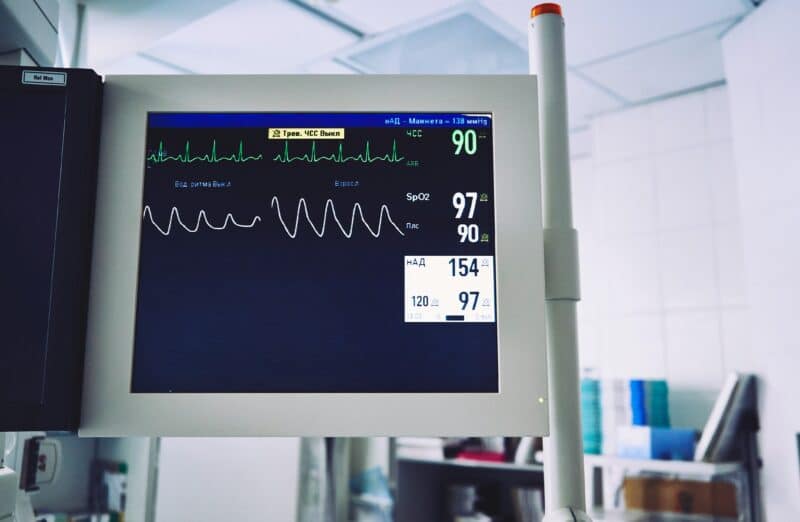
Emergency and intensive care support
Emergency and critical care professionals work in high-pressure environments to stabilise and treat life-threatening conditions. Paramedics and emergency medical technicians (EMTs) provide immediate medical care at accident scenes, while intensive care nurses and trauma surgeons manage critically ill patients in hospital settings.
Key roles: Paramedics, EMTs, intensive care nurses, trauma surgeons, emergency response technicians
Skills & attributes: Quick decision-making, resilience, advanced clinical knowledge, and excellent communication.
These roles are ideal for those who excel under pressure and want to deliver life-saving interventions.
Scorecard
Salary Potential*
Flexible Hours
Flexible Location
Physicality
*based on a 40-hour working week

Administration and support roles
Administrative roles in secondary care ensure the smooth running of hospitals, mental health services, and ambulance operations. These professionals manage patient records, coordinate staff schedules, handle financial and logistical planning, and provide front-line support for patients and their families.
From ward clerks ensuring accurate patient data entry to medical secretaries managing critical correspondence between doctors and patients, administrative staff play a vital behind-the-scenes role. They also facilitate patient admissions, appointment scheduling, and insurance processing, helping maintain order in a complex environment.
Key roles: Hospital receptionists, ward clerks, medical secretaries, patient services coordinators, health records officers, service administrators, switchboard operators, finance officers, human resources assistants, procurement coordinators
Skills & attributes: Strong organisational skills, IT proficiency, attention to detail, discretion, communication skills, and the ability to multitask in high-pressure environments.
These roles are ideal for those who: Enjoy structured environments, excel at problem-solving, and take pride in keeping healthcare operations running smoothly behind the scenes.
Scorecard
Salary Potential*
Flexible Hours
Flexible Location
Physicality
*based on a 40-hour working week

Maintenance and facilities roles
Maintenance and facilities roles are essential to creating a clean, safe, and secure environment for patients, staff, and visitors in hospitals, mental health units, and ambulance stations. These roles involve maintaining hospital buildings and equipment, ensuring compliance with health and safety standards, and providing essential cleaning, catering, and security services.
Cleaning staff play a vital role in infection prevention and control, maintaining hygiene in patient wards, operating theatres, and emergency care areas. Security officers ensure the safety of staff and patients, particularly in high-pressure environments such as emergency departments and mental health units. Estates and facilities teams oversee the maintenance of hospital infrastructure, from heating and ventilation systems to medical equipment and emergency power supplies.
Key roles: Facilities managers, maintenance technicians, electricians, plumbers, security officers, porters, cleaners, catering assistants, health & safety officers, fire safety officers
Skills & attributes: Practical problem-solving, attention to detail, an understanding of health and safety regulations, reliability, and the ability to work independently or in teams.
These roles are ideal for those who: Enjoy hands-on work, take pride in maintaining safe and functional environments, and want to contribute to patient well-being in a non-clinical capacity.
Scorecard
Salary Potential*
Flexible Hours
Flexible Location
Physicality
*based on a 40-hour working week
In addition to patient-facing and clinical roles, secondary care businesses rely on essential support functions such as administration, finance, IT, HR, and facilities management. For more information on these departments and the roles they offer, click here to explore further.
For information on local courses and qualifications that could support your career in this field, please click here.

